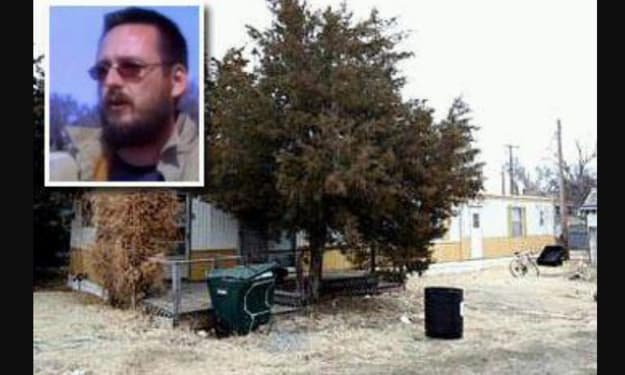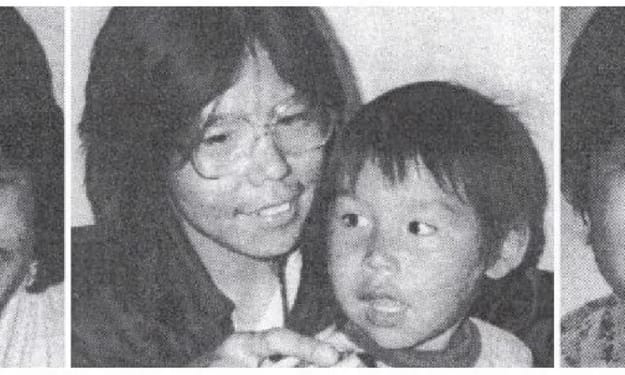Fast Food Killer
Paul Dennis Reid, the "Fast Food Killer," committed a brutal string of murders in fast-food restaurants, terrorizing communities before capture and conviction.

Paul Dennis Reid, infamously known as the Fast Food Killer was a serial killer whose gruesome crimes terrorized the American South in the late 1990s. Over the course of a few months, Reid would perpetrate a string of violent and cold-blooded murders at fast-food restaurants, leaving a trail of fear and disbelief in his wake. His story is a chilling example of the darkest depths of human depravity. Reid's early life provided some clues to the darkness that would later consume him. Born on November 12, 1957, in Fort Worth, Texas, Reid grew up in an unstable and troubled family environment. He faced neglect, abuse, and instability during his formative years, factors that often contribute to the development of criminal behavior. As he reached adulthood, his life spiraled further into chaos, marked by substance abuse and criminal activities.
However, it was in the late 1990s that Reid's name would become synonymous with terror. Between February and May of 1997, he embarked on a brutal killing spree that targeted fast-food restaurants, leaving multiple victims in his wake. His modus operandi was chillingly similar in each case: Reid would enter a restaurant, usually during closing hours, and force employees into the walk-in freezer or cooler. There, he would bind their hands and feet with duct tape, tormenting and terrorizing them before ultimately shooting them execution-style.
Reid's first known victims were Sarah Jackson and Steve Hampton, two young employees at a Baskin-Robbins in Clarksville, Tennessee. The brutality of the murders shocked the community, and investigators were baffled by the seemingly motiveless violence. It was not long before Reid struck again, this time targeting a McDonald's restaurant in Donelson, Tennessee. Five employees were herded into the walk-in cooler, where Reid systematically shot each of them, leaving four dead and one miraculously surviving despite severe injuries. The "Fast Food Killer" was gaining notoriety, and panic began to spread throughout the region. Despite the extensive media coverage and efforts by law enforcement, Reid managed to continue his reign of terror. He targeted a Captain D's restaurant in Nashville, where he murdered five employees. The horror of these crimes was compounded by the fact that Reid seemed to take pleasure in tormenting his victims before ending their lives.
The public was gripped by fear, and law enforcement agencies collaborated to apprehend this ruthless killer. Reid left behind a few vital clues, including fingerprints and DNA evidence, but it would still take months of tireless work to close in on him. Finally, in June 1997, Reid was captured in Texas after attempting a robbery. He was extradited to Tennessee, where he would face justice for his heinous crimes.
Reid's trial was a high-profile event, drawing intense media attention. The prosecution painted a chilling portrait of a remorseless killer who had terrorized fast-food employees and their families. The survivors of his attacks testified, recounting the horrors they had endured. Reid's defense attempted to argue insanity, but it was a weak case given the calculated nature of his crimes. In 1998, Paul Dennis Reid was found guilty on multiple counts of first-degree murder and received multiple life sentences, without the possibility of parole. It was a relief for the victims' families and a triumph for law enforcement, as the "Fast Food Killer" would never pose a threat to society again.
Reid's capture and conviction provided some closure for the communities he had terrorized, but the scars of his brutal crimes would never fully heal. His case serves as a chilling reminder of the capacity for evil that can exist within individuals and the enduring trauma left in the wake of such senseless violence. Tragically, Paul Dennis Reid's reign of terror was not limited to the physical harm he inflicted. His actions left a lasting impact on the survivors, their families, and the communities affected by his crimes. The fast-food industry also took steps to improve safety protocols and employee training to prevent similar incidents in the future. In 2013, Reid's own life was brought to a violent end when he was murdered by his fellow inmates in a Tennessee prison. While his death closed a dark chapter in the history of the "Fast Food Killer," the memory of his gruesome crimes continues to haunt the collective consciousness. His case remains a cautionary tale of the depths of human depravity and the enduring trauma left in its wake.





Comments
There are no comments for this story
Be the first to respond and start the conversation.